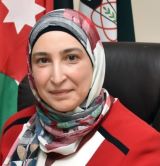|
Background: Increased application of electronic health information systems led to the buildup of patient information and facilitated access to this data. Consequently, the confidentiality of this information became an ethical challenge to medical teams' members including pharmacists. However, no study has been conducted to assess pharmacists' knowledge or practices of data confidentiality. Thus, the aim of this study was to assess the current practices and knowledge of pharmacists concerning data confidentiality.
Methods: This was a cross sectional study that included clinical pharmacists in tertiary hospitals and health care centers in Jordan. Data was collected through phone or face to face interviews using a data collection sheet. All continuous data was presented as median ± interquartile range (IQR) and categorical data as frequency (%). One way Chi square was used to check significant differences among categorical groups. Predictors that may affect knowledge and behavior scores were screened using simple linear regression.
Results: A total of 388 pharmacists were interviewed with a mean age of 39.59 ± 8.32 years, with an average experience of 12.55 ± 7.30 years. Pharmacists relied on their personal experience to resolve ethical dilemmas (n = 274, 70.3%), and when they seek advice, their work colleagues (n = 180, 46.4%) %), followed by the head of departments (144 n; 37.1%), were the main source of advice on ethical issues. The overall median knowledge score of pharmacists about data confidentiality was 2.0 out of 5.0 (IQR = 2.0). A considerable percentage of the pharmacists was willing to share information with family members without asking for permission from the patient (n = 98, 25.3%). Pharmacists had a median behavior score of 3.5 out of 4.0 (IQR = 0.4) regarding practices related to data confidentiality, where the majority of them handled medical information from the patient with great confidentiality (304 n, 78.4%), and 85.8% of them (n = 333) gave patient's sexual diseases-related medical information the highest confidentiality. However, based on univariate and multivariate linear regression analysis, none of the examined sociodemographic variables significantly predicted pharmacists' knowledge or behaviors (P > 0.05).
Conclusion: Pharmacists are aware of the importance of confidentiality issues of their patients. However, a number of gaps in their knowledge and practices of data confidentiality were identified. Training that targets these gaps in their knowledge, and rectifies incorrect practices is needed during university education and as part of their continuous medical education.
|

